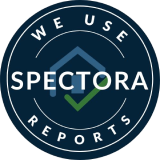
The Ultimate Home Inspection Checklist for Buyers
Are you in the market for a new home? You may be feeling overwhelmed with all of the things that are involved in buying your perfect house. One essential step is having a professional home inspection done. In order to ensure that everything is in good working condition, it’s essential to have an experienced eye look over your prospective property before closing the deal. This blog post will give you an ultimate checklist of what to expect during a thorough house inspection process, helping you ensure every detail has been considered!
What is Home Inspection?
A house inspection is a thorough examination of a property’s condition and safety, covering everything from the foundation to the roof. It’s a crucial step in the home-buying process as it can uncover hidden issues that could cost you thousands of dollars in repairs.
Experienced certified home inspectors look in-depth at electrical systems, plumbing, heating and cooling units, roofing, structural integrity, and other key aspects. They provide insightful reports to help you decide whether to move forward with a home purchase contract or renegotiate the terms. Overall, a home inspection is an essential investment that can save you money and give you peace of mind for years.
Why Do You Need a Home Inspection?
As a buyer, a buyer inspection in Orlando can be a crucial step in the investment process. However, some may question the necessity of a home inspection. After all, what could go wrong with a home that looks perfect on the surface? The answer is: plenty!
A home inspection is important because it can uncover hidden issues that may be costly to repair. For instance, a leaking roof, a faulty foundation, or faulty wiring could be lurking underneath that beautiful exterior. Without an inspection, you might have no idea about these problems until long after you’ve closed the deal. Moreover, a home inspection can be valuable for negotiating the purchase price and terms of the sale. If issues are discovered during the home inspection contingency, however, you can use this information to renegotiate the terms of the purchase agreement or ask the seller to make repairs before moving forward.
In short, a home inspection can give you peace of mind, lower the purchase price, and ensure you make a sound investment. A home inspection cost is a small cost to pay for the potential savings in the long run. So, whether you’re a first-time homebuyer or a seasoned investor, don’t skip the home inspection. It could be the most important step in the home-buying process.
New House Inspection Checklist:
Understanding what your home inspector looks for is key to interpreting the home inspection report and determining which issues to address. The results of the inspection can influence your decision to ask the seller for repairs. Home inspections typically examine a home’s physical structure, components, and systems, inside and out. Knowing what the inspection covers can help you plan your next move. Here are some of the areas your inspector will assess:
Roof and Structure
The home inspector will take a close look at the condition of the roof, including shingles, flashing, and gutters. Any signs of damage or wear could indicate the need for major repairs.
Grounds and Property
Your inspector will evaluate the exterior grounds and property. This includes assessing the condition of driveways, walkways, patios, decks, and landscaping. They’ll also check for drainage problems, foundation issues, and other potential hazards that could affect the property’s value or safety.
Interior
Next, the inspector will examine the interior of the home. This includes checking all doors and windows, flooring, walls, and ceilings. They’ll also look for signs of water damage or leakage, such as mold or mildew, which can cause structural damage and require significant repairs.
Exterior Structure
The home’s exterior structure is an essential component of the inspection process. Inspectors will evaluate the home’s roof, siding, gutters, and chimney, looking for signs of wear, damage, or any other potential concerns.
Doors and Windows
Doors and windows are critical areas of the home that must be examined closely. An inspector will ensure that all doors and windows function properly, including hinges, locks, and latches. They’ll also check for any drafty areas that could affect the home’s heating and cooling efficiency.
Attic
The attic is often overlooked during real estate transactions, but it can be a crucial area to inspect. Inspectors will examine the insulation, ventilation, and framing of the attic to ensure that it is structurally sound. They’ll also check for signs of pests or other infestations that could damage the home.
Kitchen
The kitchen is one of the most heavily used areas of the home, which means it must be inspected thoroughly. Inspectors will check all appliances, including the stove, dishwasher, and refrigerator. They’ll also scan the countertops, cabinets, and flooring for signs of wear and damage.
Electrical Systems
Electricals are critical to the safety and functionality of a home. An inspector will examine the electrical panel, wiring, the electrical outlets used, and switches to ensure that they are up to code, installed correctly, and pose no safety hazards.
Plumbing Systems
The plumbing system is another essential component of a home’s functionality. Inspectors will evaluate the home’s major components of water supply and drainage and distribution systems, including the pipes, faucets, water heater, and sewage system, to ensure that they are working correctly and there are no leaks or blockages.
Heating and Cooling Systems
Inspectors will evaluate the home’s heating and cooling systems to ensure that they operate correctly, efficiently, and safely. This includes checking the furnace, the HVAC system, the components, and the ventilation system.
Miscellaneous
Finally, inspectors will evaluate any other miscellaneous areas that need to be examined, such as garages, basements, and crawl spaces. They’ll check for any potential issues that might affect the home’s value or safety, such as structural issues such as leaks, cracks, or inadequate ventilation.
A professional home inspection can provide critical information about a home’s condition, helping you make informed decisions about your purchase. Using this new professional home inspection checklist ensures that your inspector covers all the essential components and systems to guarantee your new home is safe, secure, and up to code.
What Happens After a Home Inspection Report?
Understanding what happens after a home inspection in Orlando, Florida, is crucial for a home buyer. Once you receive the inspection report, you and your real estate agent will review it and decide if any issues need to be addressed with the seller. Depending on what is found during the home inspection process, negotiations may occur to determine if the seller will make repairs or give a credit towards the sale price. It’s important to note that not all issues found during an inspection will necessarily be deal breakers. As the buyer, you have the option to move forward with the purchase, negotiate repairs, or even walk away from the sale altogether.
Conclusion
Overall, home inspections are an invaluable resource that helps you make informed decisions about the purchase. Using this ultimate checklist for home inspections as a guide when looking at potential properties can give you peace of mind, knowing that everything possible has been checked off the list before signing on the dotted line.















